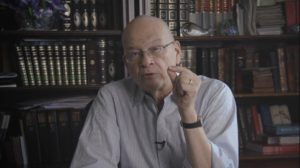My wife has spent almost 30 years in constant and often unbearable pain. And for many Christians, this just doesn’t fit with the faith they’ve been taught in church. For them. Christianity is about overcoming, not about enduring. It’s about dreams coming true, not shattered dreams. And it’s certainly not about persistent suffering.
And it isn’t just the Joel Osteen version of Christianity that comes up short. Try telling a fellow Christian that your wife is in unrelenting pain that often makes her feel faint or that her limbs have been crushed by a steamroller, that medicine can’t fix it, that this Ivy League-educated former ski instructor has to spend most of her waking hours in bed, that pain killers aren’t an option (because of addiction or even worse side effects), that her career dreams and life goals are all impossible to achieve, and that the pain often requires her to be in a darkened room, awake and bored, with no stimulation. And this isn’t the half of it.
Well-meaning people immediately suggest ways to fix the problem. You think we haven’t tried just about everything, and that none of it has worked and most of it makes her worse? Trust me, my wife isn’t a hypochondriac and the NIH has found her to have a very high pain threshold. It’s not her fault.
Some people don’t want to believe that, because if that’s true, then maybe the same thing could strike them or someone they love. And that’s frightening, so it’s more comforting to believe that somehow my wife is to blame. And if she doesn’t try the latest cure they read about, that’s only more evidence that she really wants to be sick.
I’m grateful for the sentiment when people say that it’s harder for me as the long-suffering husband, but that’s not true. It’s much, much harder for my wife.
Can my wife say that her suffering has all been worth it on this side of heaven, and that she’s learned invaluable lessons she wouldn’t trade for the pain? Nope. She would gladly trade everything she’s learned to not be in pain.
So where is God in all of this? Why won’t he intervene? We know he could heal her. He heals some people, but not others. Why? We don’t know. That’s beyond our ken. And God never promised to reverse the effects of the Fall in this life. That comes in heaven.
Her suffering doesn’t make sense now, but our faith is that it will make sense in eternity.
The challenge is to hold on to faith in a God who loves my wife, has a plan for her ultimate good through her suffering, and will give her grace not to sin in her suffering, if she chooses aright. Her suffering doesn’t make sense now, but our faith is that it will make sense in eternity.
The key word is “faith.” The final answer is not visible to us now, but it’s a costly affirmation of a truth based on who we believe God is, not based on what my wife has experienced. In the Bible, James writes that we should “consider it pure joy” when we face trials. Come again? Pure joy? Try experiencing that joy when you’re nauseous from the pain.
Maybe the joy is pure because it is not mixed with experience; in fact, it has nothing to do with experience, and everything to do with faith. So perhaps the purity comes from the source of the unseen hope, not what the suffering person feels. And it’s an intellectual affirmation, often divorced from any feeling whatsoever, because it is an affirmation of what will be true in the future, namely that “the testing of your faith produces perseverance. Let perseverance finish its work so that you may be mature and complete, not lacking anything.”
God doesn’t look good when he fails to heal my wife. It would cost him nothing to heal her.
And that’s what makes it a “trial” and a “test”: believing he is good, notwithstanding how he looks in the moment. It’s not a stretch to believe he’s good when your dreams come true. Try believing it when those dreams are all permanently crushed. And when your new, smaller dreams – things like being able to walk around the block or attend your child’s soccer game or your 40th high school reunion, which you had been so looking forward to – are also crushed, and new symptoms develop that increase your suffering. And still say, through gritted teeth, “God, you love me and you are good.” And act on that unseen faith. That’s a pure joy divorced from experience, but grounded in faith. It’s not a joyful joy, it’s just hopeful joy about what will be, but is achingly absent today.
Love is a verb, not a noun. It’s how we act, not what we feel. My wife loves God by teaching her children that he is good. She loves God by not cursing him, but praising him with her mouth and her heart. She loves God by continuing to make hard choices to follow him – choices much harder for her than for me, because my life is filled with pleasant experiences.
I look forward to the reception that my wife receives in heaven. I am convinced she will receive a huge parade, if such things happen in heaven. She will hear the warm, smiling words, “well done, my good and faithful servant,” and she will enter into a life that is free of suffering or pain or broken dreams. I am so proud of my wife.
And our faith is that her suffering will not have been meaningless, but we will then see the currently invisible purpose and fruit borne by her faithfulness.




